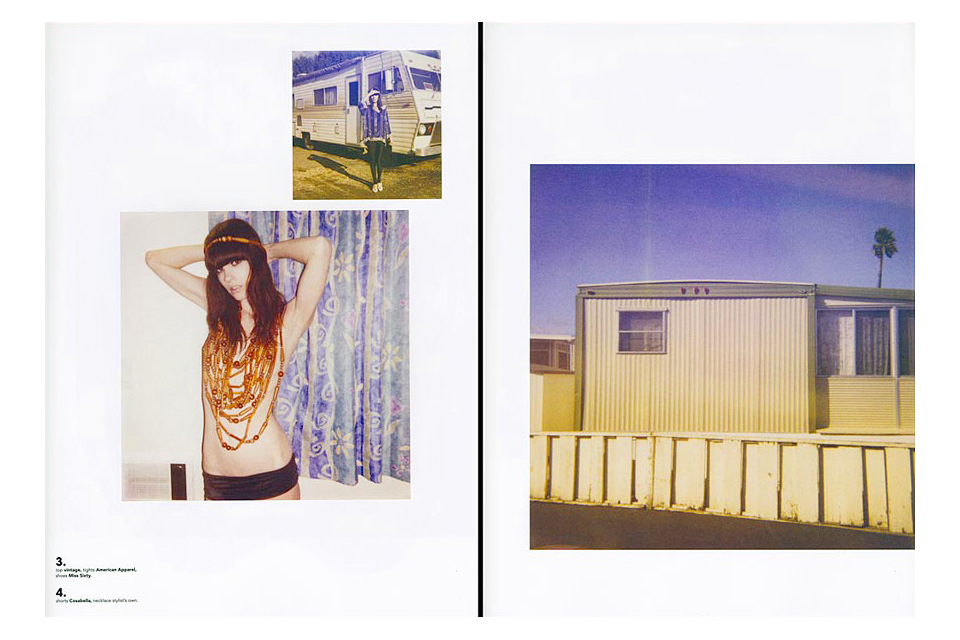

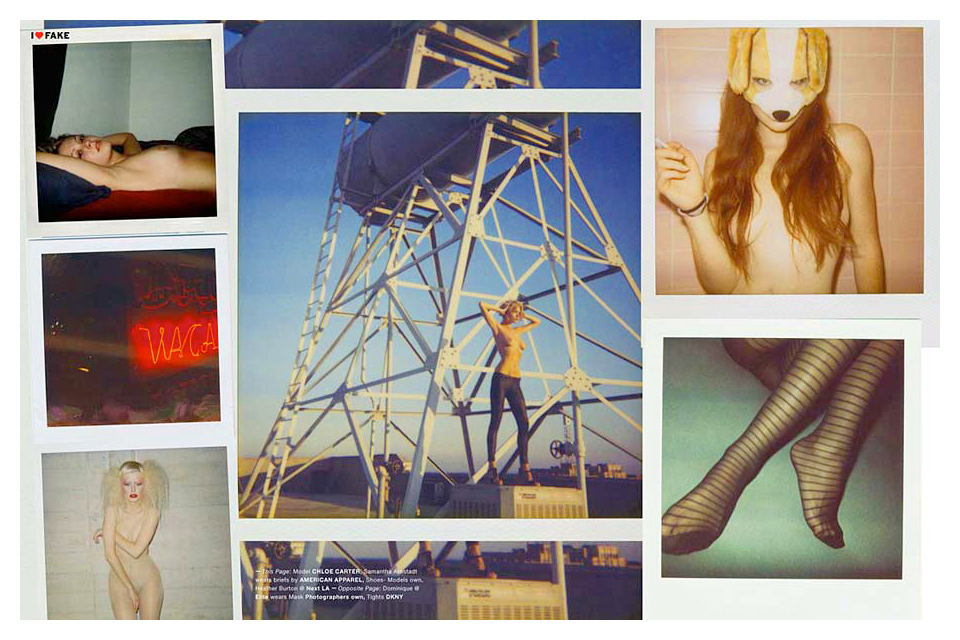
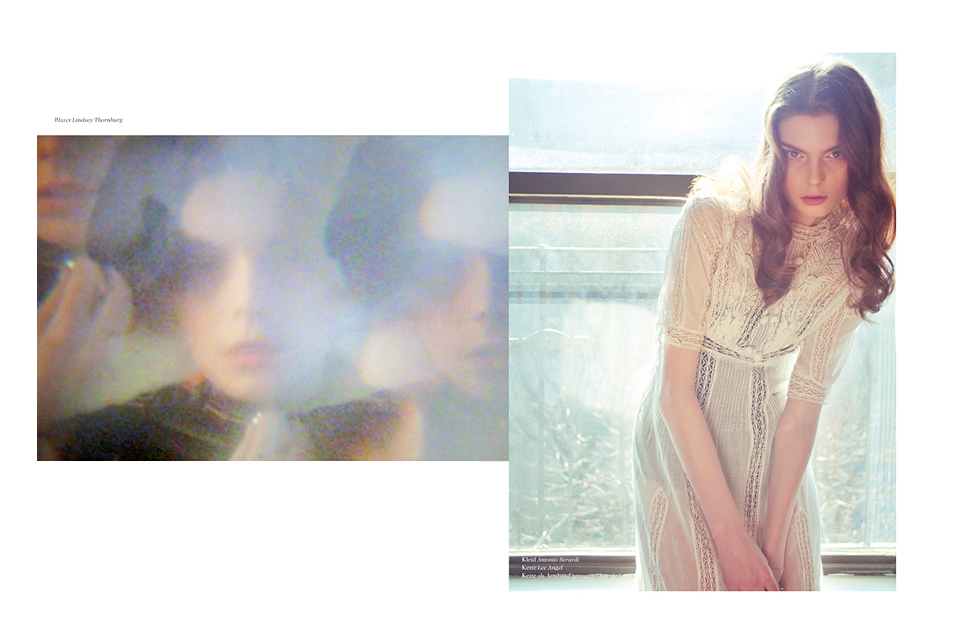
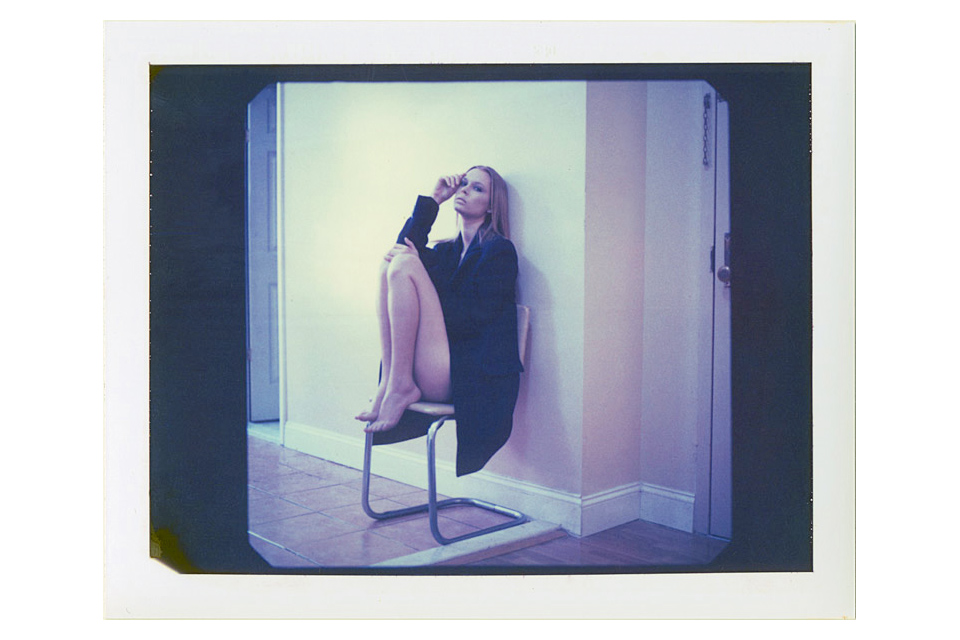
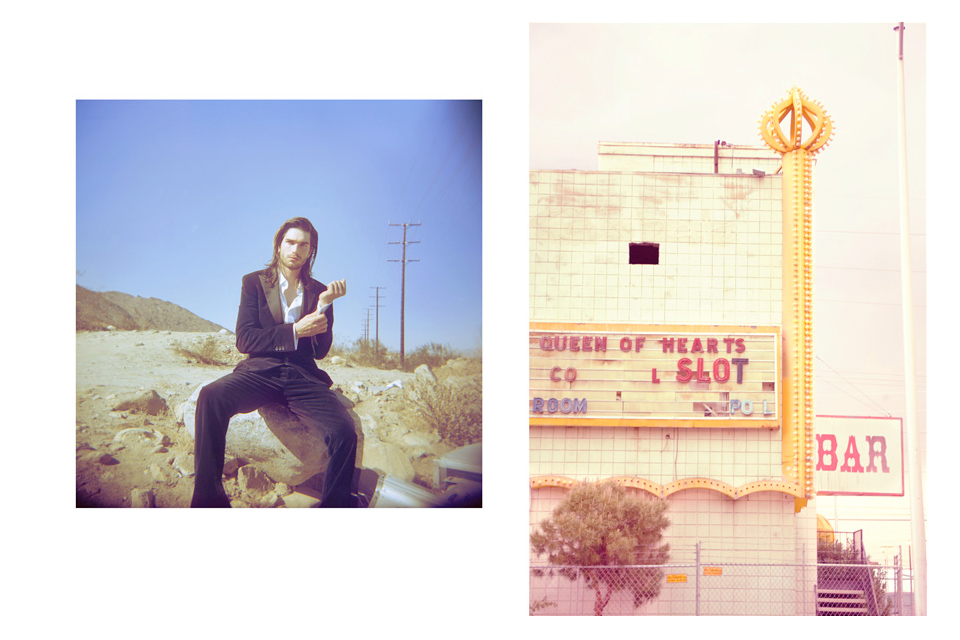
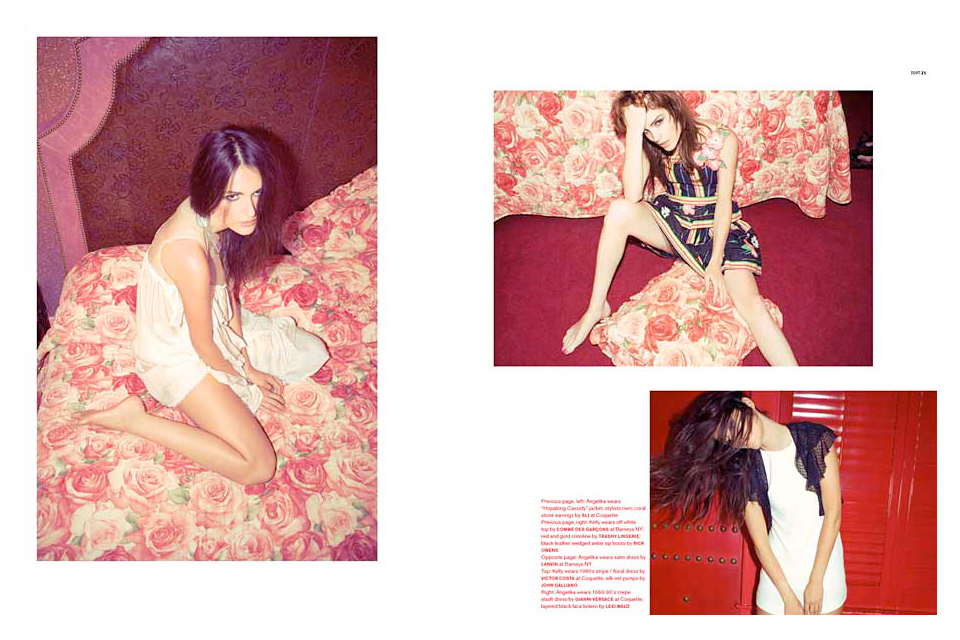
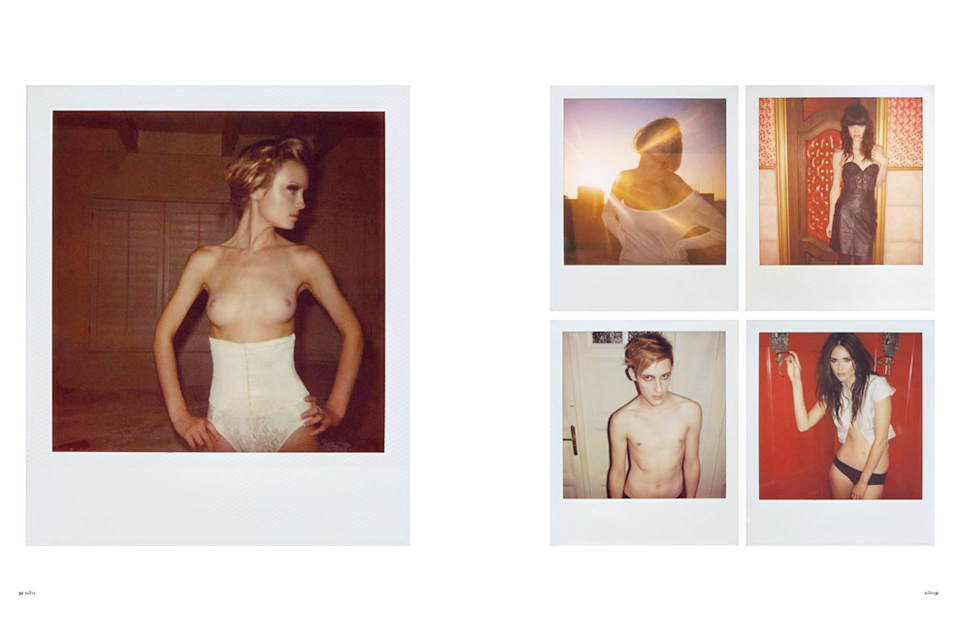
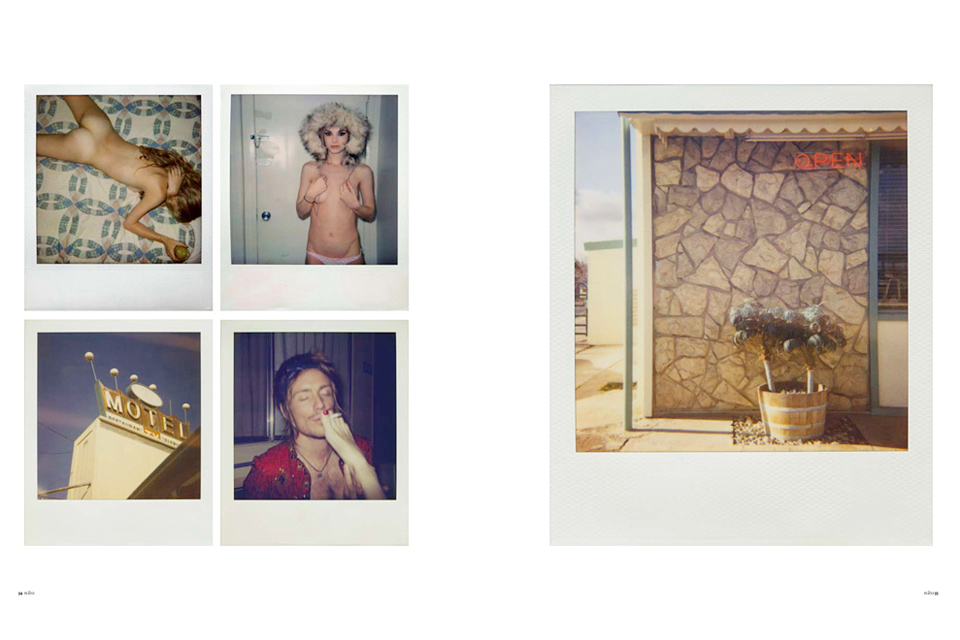
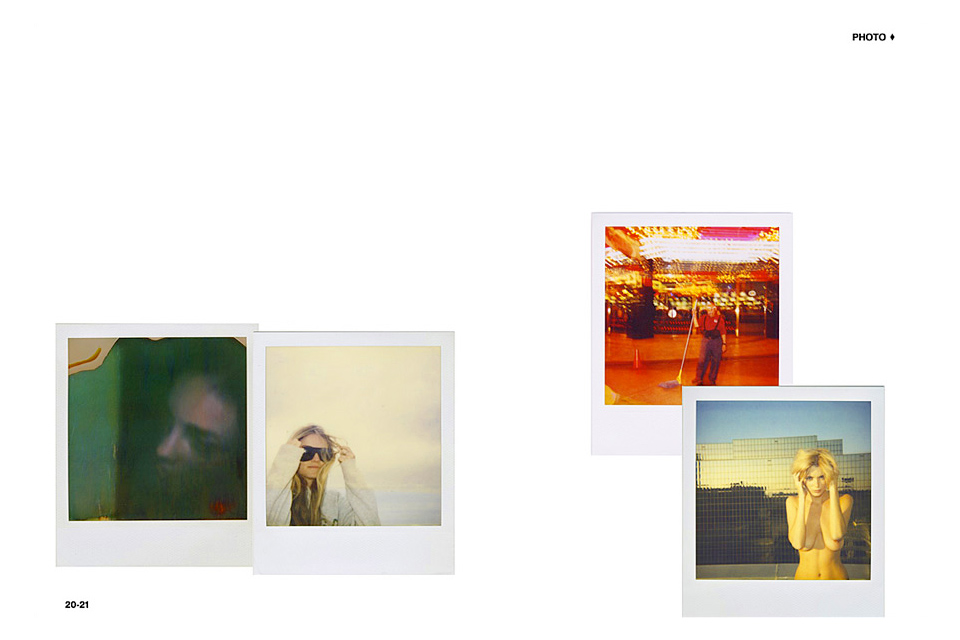
andrew kuykendall
A fascination of the left behind and the story that precedes
interview: Daniel Perlaky
images: courtesy Andrew Kuykendall
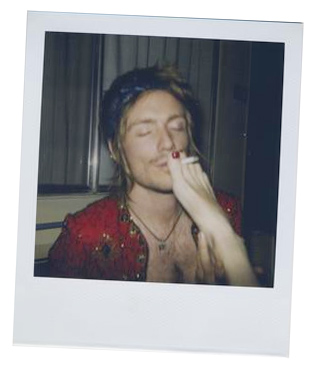
Photographer Andrew Kuykendall chronicles a depraved and reckless beauty — a visceral man with a vision that blurs documentary and theatrical. His work is influenced by ephemeral landscapes and a purgatory of sideways places in which his cast can roam uninhibited. There he captures the lustful struggle for power ritualistically displayed through carnal sexuality. And the light, the light, a purity in that dirty golden light.
What was the first time you recall your mind being completely blown?
When I was in kindergarden one of my friends in the apartment complex I lived in invited me over to look at his porno collection. I was about 5 and he was about 5 as well and his mom was really fat and didn't get out of bed very much. He showed me some magazines and then let me take one home. My mother caught me right away. It was a really shitty small town outside the desert in California.
What do you miss about analog machines?
I miss how accessible and cheap the film was at one time. I still have all my old analog machines but that doesn't do much good if it's an ordeal to get your hands on the film.
What was your first camera and describe how it felt to play with it.
I bought my first Polaroid camera about 13 years ago. I would be a few years before I took any of it seriously, as a passion or career or whatever. It certainly had to do with the immediacy of the images, being able to manipulate them, watch them take shape in front of you that made it so thrilling. There was always an element of surprise when it came out which became fascinating. At the time it was still affordable so there wasn't any pressure for the picture to come out right.
You seem to introduce an element of dirt, distressing, and grime into your work. Are you drawn to the imperfect?
It's difficult in a genre such as "fashion" to say that "imperfection" is something I'm drawn to, but absolutely. Although maybe it's more about finding models who have a strange beauty in these distressed settings and situations. Maybe it's seeing the story behind why she's there and if she/he is out of place what kind of emotion that inspires. When shooting fashion it's impossible to get around certain rules (quality of models, wardrobe, etc.), but accepting these rules and making the story ones own is important for it to become believable. In other words I find it very beautiful to have perfect things in imperfect situations.
There's an 80s coloration to some of your images. What are those shot with and what draws you to those muted, faded colors?
It would be impossible to deny how much effect ones environment has on their perspective. I grew up in California and the colors of the surroundings, and the desert light around Los Angeles has deeply influenced my sensibility.
Some of your spreads feature structures and environments as prominently as they do fashion. How do you make those connections and do you shoot both at the same time or combine different bodies of work?
Cinema will always be my first love as an artistic medium. In this way environment and how a character interacts with their settings is very important. I feel that in many or most instances the environment is equally important to the story, as if it were an opposing character. Both are necessary to tell the story.
I perceive an element of desolation and abandonment in many of your images. Is that intentional or do you feel differently about it? What makes the abandoned beautiful?
I moved around quite a bit when I was young, around 13 times by the time I was 7. Many of these places were desolate and abandoned. I've always felt a fascination to places that have been left behind and the story that precedes it. I don't want to say I romanticize the idea of hopelessness or poverty or anything like that. I see the potential for narrative in these in-between places.
You work a lot with Polaroid -- what about that camera attracts you to it and what role does it play in the feel of the final image?
Much of my fashion work is about suggesting a narrative, to create an atmosphere and have models become characters in it. When I began taking Polaroids, it was more to tell my own story, almost documentary, rather than sometime fantasized. The medium was more a choice I made for the immediacy of the results, as well as the intimacy (it also wasn't as expensive back then). Growing up in the late 70's and early 80's there were undeniable associations with the aesthetic of Polaroid. It reminded me of old family portraits by the pool and old album covers. It reminded me of a time when adults were still young and beautiful and happy.
Where do you go and what do you do when you're jonesing for some inspiration.
Downtown Las Vegas, away from "the Strip", away from the tourism and circus, it's a very strange and beautiful place. I'm very inspired by the normal survival and the daily measure in a place as unlikely as there. Also Joshua Tree, Palm Springs, Salton Sea area.
There's a raw sexuality, and perhaps even a bit of raunch, to your work. How do you identify with that?
Sexuality plays a role in everything I think (I'm speaking for myself of course). Life seems to always be a game with ones vulnerability and power, and in photography this can be amplified. There are games that take place between photographer and subject, between artist and viewer, and this can be interesting. My work is very much motivated by the erotic nature of ones vulnerability and their power. Playfulness is also a very important aspect in the eroticism of my Polaroids. I think it's very important to reveal all sides of eroticism, the innocent as well as the devious, in ones body of work.
